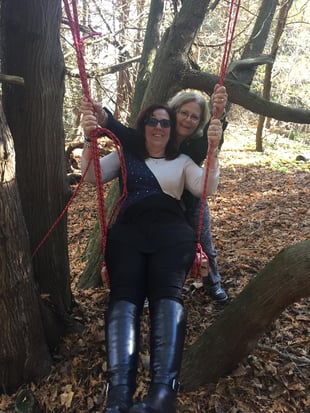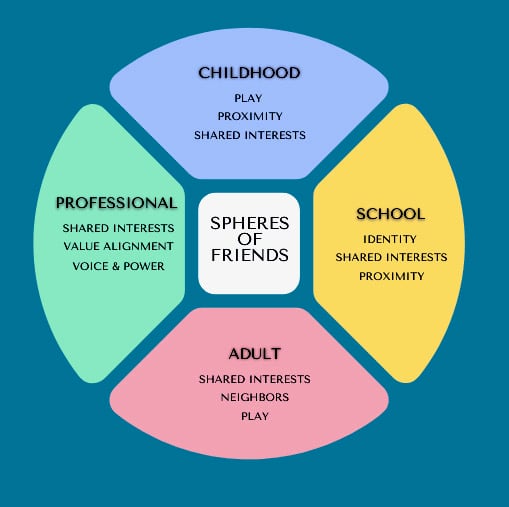Key Points
- The role of a critical friend is based on the recognition that hard truths, emotionally difficult topics, and performance reviews can be hard to receive when there is a power differential.
- Trust is essential. From this basis of trust, a critical friend learns how to ask provocative questions and provide different lenses to view and examine practice.
- A critical friend offers critique instead of criticism. Criticism is judgmental and focused on finding fault, while critique is descriptive and balanced feedback.
On this page
What a critical friend has taught me
Reflecting on friendship spheres
The role of a critical friend
Criticism v critique
My name is Diane Kashin. I am a registered early childhood educator in the province of Ontario, Canada. I am a retired early childhood education professor, and I am currently researching, writing, and presenting on the topic of professional friendships in early childhood education. Known as critical friendship, this term is used to describe a complex relationship between two colleagues.
When you are in a critical friendship, you depend on each other to challenge, support, and comfort. You want your friend to reach their fullest potential and your friend wants the same for you. Introduced by Costa and Kallick in 1993, critical friendship has become a model for professional learning. However, the research is primarily not focused on the early childhood education sector. This is something, I would like to change! We promote friendship development in children … why not in each other?
 This is my friend, Cindy. I have so much gratitude for our long-lasting friendship. There have been times in my professional life that I needed a friend who had the courage to tell me what was often hard to hear. I am thankful to Cindy for being able to say what needed to be said from a position of care, kindness, love, and compassion.
This is my friend, Cindy. I have so much gratitude for our long-lasting friendship. There have been times in my professional life that I needed a friend who had the courage to tell me what was often hard to hear. I am thankful to Cindy for being able to say what needed to be said from a position of care, kindness, love, and compassion.
Cindy taught me how to be a professional friend. It is through her that I have developed my own capacity to be a critical friend. The bond that I have with Cindy is strong. We have been friends for over three decades. We have worked and played together.
Why did we choose each other as friends and in particular, professional friends?
The friendship spheres
We are both early childhood educators who became early childhood, education professors. We retired from teaching one year apart and have worked together since as presenters and consultants. There are many spheres of friendship. My friendship with Cindy is represented in the professional sphere and our relationship has morphed into something that feels like family. I have had other spheres of friendship throughout my life, each unique to the other.
What do you think the value is in reflecting on our friendship spheres? Take a look at this graphic to spark your thinking!

The role of a critical friend
Do you have a professional friend that can fill the role of a critical friend? If you do, you can cultivate and grow this relationship. It will help you improve your practice! The role of a critical friend is based on the recognition that hard truths, emotionally difficult topics, and performance reviews can be hard to receive when there is a power differential. I always found it difficult when criticized by someone in a supervisory role. Perhaps their feedback was not intended to be negative, but it felt like criticism. However, when feedback was offered by a peer, who constructively and professionally provided observations designed to help me shine, it was different.
Critique v Criticism
Hard truths are always hard to hear but my friend Cindy has my back, my friend wants the best for me. We trust one another wholeheartedly. Trust is essential. From this basis of trust, a critical friend learns how to ask provocative questions and provide different lenses to view and examine practice. A critical friend offers critique instead of criticism. Generally speaking, criticism is judgmental and focused on finding fault, while critique is descriptive and balanced feedback.
Criticism can hurt and be misinterpreted, leading to defensiveness. Critique supports reflection. Reflection helps you to improve practice. This is what your friend wants for you, and what you should want for your friend. This shared understanding is essential to one’s personal and professional growth.
By Dr Diane Kashin
Written and reviewed February 23, 2022









